Post editors from 1978, pooling 50 years of favorites, joined distinguished film critics Rex Reed and John Simon and the American Film Institute in daring to choose the best movies, actors and actresses of all time: You may not agree with the choices but they call up happy hours spent in the dark.
The American Film Institute picks the 50 best movies. The top 10 are:
- The African Queen (1952)
- Casablanca (1942)
- Citizen Kane (1941)
- Gone With the Wind (1939)
- The Grapes of Wrath (1940)
- One Flew Over the Cuckoo’s Nest (1975)
- Singin’ in the Rain (1952)
- Star Wars (1977)
- 2001: A Space Odyssey (1968)
- The Wizard of Oz (1939)
The next 40 are:
- All About Eve (1950)
- All Quiet on the Western Front (1930)
- All the President’s Men (1976)
- Ben Hur (1959)
- The Best Years of Our Lives (1946)
- The Birth of a Nation (1915)
- Bridge on the River Kwai (1957)
- Butch Cassidy & the Sundance Kid (1969)
- Cabaret (1972)
- Chinatown (1974)
- City Lights (1931)
- Strangelove (1964)
- Fantasia (1940)
- The General (1927)
- The Godfather (1972)
- The Godfather, Part II (1974)
- The Graduate (1967)
- High Noon (1952)
- Intolerance (1916)
- It Happened One Night (1934)
- It’s a Wonderful Life (1946)
- Jaws (1976)
- King Kong (1933)
- Lawrence of Arabia (1962)
- The Maltese Falcon (1941)
- Midnight Cowboy (1969)
- Modern Times (1936)
- Nashville (1975)
- On the Waterfront (1954)
- Psycho (1960)
- Rocky (1976)
- Snow White & the Seven Dwarfs (1938)
- The Sound of Music (1965)
- The Sting (1973)
- A Streetcar Named Desire (1951)
- Sunset Boulevard (1950)
- To Kill a Mockingbird (1962)
- The Treasure of the Sierra Madre (1948)
- West Side Story (1961)
- Wuthering Heights (1939)
Best Movie
Gone With the Wind: Although there have been more artistic triumphs, it is the film I’ve seen most and I have never been even slightly bored or disappointed. Forty years later, it is still freshly minted.
Rex Reed
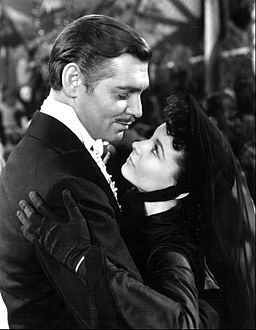
Badlands is the only completely successful film made in Hollywood by an individual — Terrence Malick — whose vision is realized in every aspect of the movie. In other words, the triumph of the individual over the corporate system.
John Simon
The Wizard of Oz: Its irrepressible good humor, its innocence, its compartmentalization of good and evil, its exuberant songs and dances which fit perfectly within the willing, oh-so willing, suspension of disbelief, its characters, its stars, its child, its dog, its allegorical interest make it that great rarity, a family favorite, a signal of joy to moviegoers and television watchers all over the world.
Editors
Best Actor
Spencer Tracy was all things to all people; he knew his craft brilliantly, yet created the illusion that what you were seeing was effortless.
Rex Reed
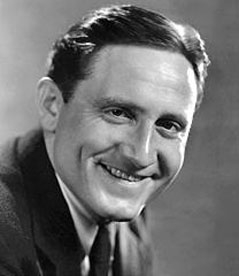
Fredric March was the most graceful, intelligent, and versatile actor in American movies, as good at dramatic as at comic roles, as fine as leading man as he was as character actor. Yet he has been unjustly overshadowed by flashy performers of far less substance.
John Simon
Sir Alec Guinness takes you into his confidence with an intimacy so pleasant and yet with a sweep so grand — from The Lavender Hill Mob to Star Wars, from Great Expectations to The Bridge on the River Kwai — that his acting becomes an analysis of your possibilities, your past, your sense of all that the world has accomplished. This is the triumph of a great actor, the giving of his audience to itself.
Editors
Best Actress
Audrey Hepburn never made a wrong move, she made even bad movies memorable, and she spanned three decades without ever losing her “star” status. Or — Judy Garland who did the same thing!
Rex Reed
Jane Fonda (in Klute, They Shoot Horses, Don’t They?, and Coming Home): A splendid comedienne, a perceptively incisive dramatic actress, a woman of loveliness that is not of the usual Hollywood sort, and an artist who keeps growing from part to part.
John Simon

Elizabeth Taylor’s stunning beauty, her precise articulation, her sense of real stardom have made literature of a number of her films — National Velvet, Cat on a Hot Tin Roof, Who’s Afraid of Virginia Woolf? — literature in which she performs in comfortable equality with the stories’ creators: Enid Bagnold, Tennessee Williams, Edward Albee.
Editors
Rex Reed, Syndicated columnist
BEST SUPPORTING ACTOR
Clifton Webb never achieved the leading-man status he deserved, but he brought class to films at a time when it was badly needed.
BEST SUPPORTING ACTRESS
Thelma Ritter: Although she never won an Oscar, she was continually nominated for adding magic and mirth to films in which even the stars were often negligible. She was (and still is) more memorable than the films she appeared in.
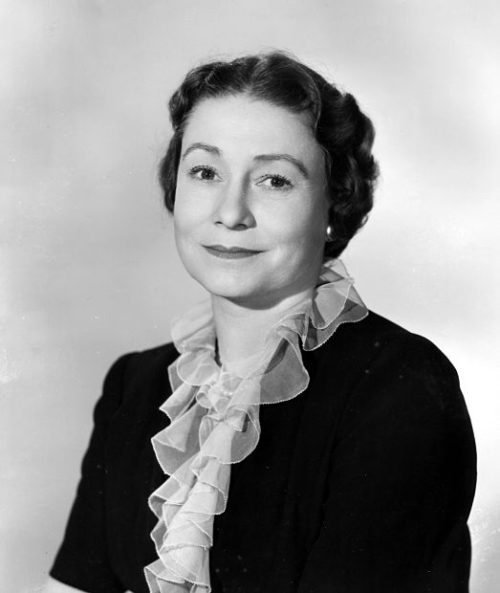
DIRECTOR
Fred Zinnemann avoided the “auteur” stamp and turned out many different kinds of movies, each speaking artistically on its own terms. Each time the theme of the small person triumphing in a harsh world came through valiantly, from From Here to Eternity to The Member of the Wedding.
ANIMAL MOVIE
Lassie Come Home (and all of the sequels in that M-G-M series): Still the best of the animal films and even today, it gets me in the tear ducts every time.
COMEDY
Some Like It Hot enlarged the “war between the sexes” theme in ways most audiences never contemplated before.
EPIC
Bondarchuk’s Russian War and Peace taught me how new uses could be made of extras. The crowds took on a personality of their own to create an astonishing canvas of an era. So did the battles.
MUSICAL
Singin’ in the Rain proved Hollywood does it better than anyone else. It also used color, music, choreography, writing, and visual splendor to the fullest without losing a grip on its story line. It all added up to masterful entertainment.
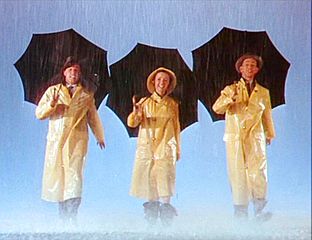
MYSTERY
Citizen Kane enlarged our scope of what the film medium can do, told a riveting story, and was so original in concept everyone has been copying it ever since.
LOVE STORY
Mrs. Miniver glorified good people who believed in achieving inner success through their deeds rather than through their sexuality.
WAR
The Best Years of Our Lives: Without one shot of a gun going off or a limb being blown up, it investigated the hearts, emotions, minds, and doubts of the men who make wars happen. It also told the story of American heroism better than any other film about the war years, without ever visiting the battlefront.
WESTERN
Two favorites here. Stagecoach: While it enlarged our view of a time and place, it demonstrated brilliant cinematic use of a diversity of characters in a tight situation; and Shane: It took the time to develop emotional attitudes in its characters instead of using Western myths as clichés.
John Simon, Film critic for New York magazine
BEST SUPPORTING ACTOR
Leslie Howard in Gone With the Wind: The only way one can pick the best supporting actor in 50 years — a rather absurd thing to have to do — is to free associate. The first name that comes into your mind must have a special, almost mystical, significance.
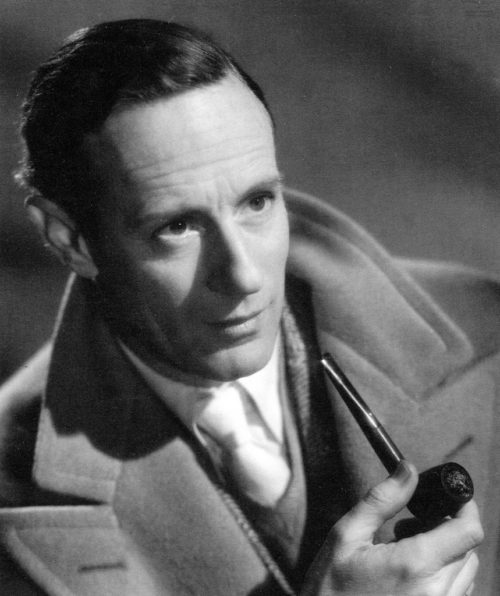
BEST SUPPORTING ACTRESS
Claire Trevor in Key Largo: Same as above. This is the first supporting performance by an actress that presented itself to me.
DIRECTOR
Stanley Kubrick is the only American director who is represented by two movies in what follows.
ANIMAL MOVIE
The Roots of Heaven: Most animal films are about the lovableness or heroism of a particular animal; The Roots of Heaven was about something bigger — the need to preserve endangered species — and made a convincing case against the vileness of elephant hunters, and, by implication, other kinds of game hunters.
COMEDY
Dr. Strangelove: or How I Learned to Stop Worrying and Love the Bomb is a rare absurdist comedy with very serious implications. It is screamingly funny while making its highly important anti-nuclear war statement.
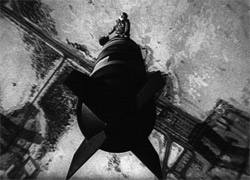
EPIC
Lawrence of Arabia: Despite some flaws (notably some cutting after release, as well as additions for the re-release), this is the only epic film with genuine intellectual and artistic values as well as true filmmaking skills.
MUSICAL
Top Hat: The Rogers-Astaire films had good music, excellent dancing, and none of the pretentiousness of movies like Singin’ in the Rain. I’m not sure whether Top Hat was the best of them, but it represents them well and is the best remembered.
MYSTERY
Strangers on a Train: The master of mystery was, as any child knows, Hitchcock. Which of his many solid mysteries was the best may remain a mystery forever, but this one had the most provocative plot, believable characters, and tremendous suspense.
LOVE STORY
The African Queen is more than just a charming romance — the story of love coming to unlikely middle-aged people and transforming them, through genuine mutual respect, into finer, socially responsible human beings.
WAR
Paths of Glory: Among many so-called antiwar films, it may be the only one that — without forsaking the bounds of believability — shows the true dirtiness of war. There is no sense of heroism, nobility, or whatever; only horror.
WESTERN
No choice in this category. The Western is basically an infantile genre. It either idealizes false values, while also insulting the Indians, or else it is an anti-Western, scoring easy points by inverting to usual Westerns, which is facile and also infantile.
Editors, The Saturday Evening Post
BEST SUPPORTING ACTOR
Villains are, by definition, not heroes, not stars, and although Sidney Greenstreet was a superb and successful stage actor and played several good-guy roles in the movies, and although Peter Lorre had a likewise outstanding career, both were most memorable as villains (especially in Casablanca and The Maltese Falcon), no-goods who had to get theirs in the end. But they were both so very good at being very bad.
BEST SUPPORTING ACTRESS
Agnes Moorehead: Her real tragedy was that no one saw how pretty she was. Never one to sulk, she conquered character roles, putting on a shrewish hue, listening to the role instead of her own vanity, creating a workable relation — one that audiences could sympathize with and understand — with the dark side of the human condition.
DIRECTOR
Ingmar Bergman: While American movies were veering dangerously toward a Doris Day/light comedy repertory, the Swedish moviemaker introduced an incisive probe into the mystical human spirit, creating such beautiful films as Wild Strawberries, The Seventh Seal, and Cries and Whispers on a pathetic budget to show Hollywood that there was such a thing as more taste than money.
ANIMAL MOVIE
National Velvet was a horse race which the audience won. Child stars “Butch” Jenkins (who retired at age 10), Mickey Rooney, and Elizabeth Taylor under the superb professionalism of Angela Lansbury and Anne Revere turned Enid Bagnold’s classic children’s story into a pride of faith and hope.
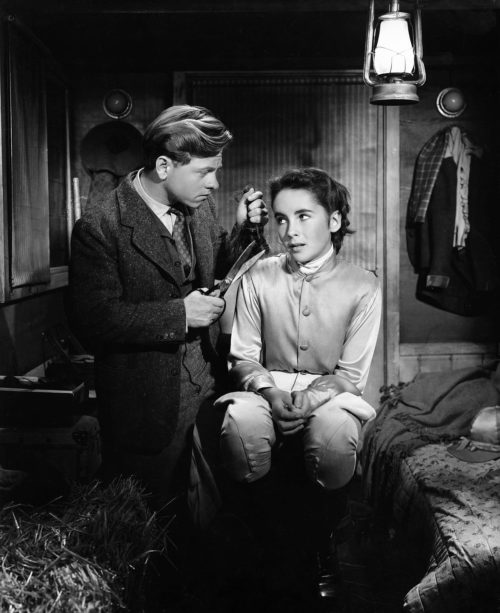
COMEDY
The Graduate: A good moviemaker, Mike Nichols, at his best, and a wonderful actor, Dustin Hoffman, at better than his best, which is considerable. You just cannot stop laughing, all the time knowing that you shouldn’t be laughing, Benjamin’s problems aren’t funny, they’re so real and tragic it hurts, but so funny, lord. I mean, plastics? Plastics?
EPIC
Apparently an epic movie is one that has battle scenes and an intermission. Both parts of The Godfather are a little shy on battle scenes (not on killings, certainly, but on mass fights), and a sequel may not be quite the same as a second act. But both movies were unusually long, and considered together — television even went so far as to sort things out, chronologically — they certainly qualify. It is (they are?) an epic, and of a new, more honest, less grand, and thus more powerful ilk.
MUSICAL
High Society — The Philadelphia Story with Cole Porter’s songs; Louis Armstrong’s brilliant and contagious happiness; the glacially pretty Grace Kelly; Mr. Cool, Bing Crosby; Frank Sinatra; and one of the straightest, best songs of any movie, “True Love” — offers classy entertainment completely devoid of snobbery.
MYSTERY
Two choices here, necessarily. Lady from Shanghai, because its technical achievements — camera angles, lighting, superb editing, all the Orson Welles trademarks — are so immense and intense that the mystery is as much in how such a movie could come into being as in the nevertheless hypnotic plot. And, for Bogart’s sake, The Maltese Falcon. One of his finest performances, in the kind of role he handled best. The Sam Spade, Philip Marlowesque private eye who is stabbed in the back by everyone including the beautiful girl, especially the beautiful girl. Who survives, but loses everything, including any idea of why or what he has lost.
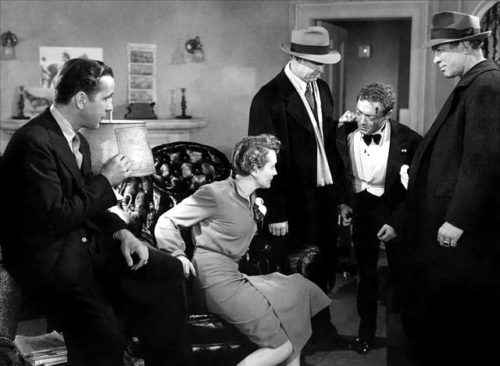
LOVE STORY
D. H. Lawrence’s novel, Women in Love, was transformed by Ken Russell into a rich tapestry of love and class where the body and affection ruled inheritance and wealth. Glittering scenes and carefully researched literary associations make the movie a visual as well as an intellectual reward.
WAR
M.A.S.H., because although the war is there it’s nothing mystical, nothing necessarily more — or less — serious than life, sex, death, or football, all of which get their fair share before the lights come back on.
WESTERN
McCabe and Mrs. Miller because, for one thing, it is beautifully filmed. It is impressionistic, warm and soft, even at its most violent. Director Robert Altman makes you believe the entire movie was shot by the yellow glow of kerosene lamps. He focuses on his characters, on Warren Beatty and Julie Christie, who are themselves beautiful, and refreshingly — for the genre — fallible, human.
From the July/August 1978 issue of The Saturday Evening Post
Become a Saturday Evening Post member and enjoy unlimited access. Subscribe now
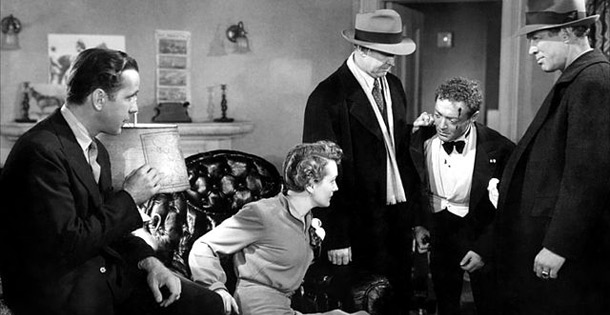



Comments
I don’t know anybody who’s seen The Roots of Heaven besides me. I caught it on late night tv on the 70’s, and I’ve never forgotten it. Those doomed behemoths and that outcast crew fighting for them… the magnificent Juliette Greco and a fading Errol Flynn who brought knighthood back for a last look. One of the best non-preachy eco-dramas of our time, and it’s practically ignored. Thanks for remembering it.